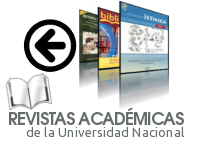Teaching Practices in Classrooms, Teacher Voices, and Educational Policies: The Case of the Spanish Language Program for Primary Education in Costa Rica
DOI:
https://doi.org/10.15359/udre.11-1.3Keywords:
university extension, teaching practices, study programs, teaching training, elementary schoolAbstract
This paper is elaborated within the project titled Teaching practices in classrooms, teacher voices, and educational policies: changes to school format. It is assigned to the Basic Education Division (DEB) of the Center for Teaching and Research in Education (CIDE) at the National University (UNA) of Costa Rica. From the teaching-extension work, this project has a direct relationship of thematic and operational continuity with the integrated project titled Building a proposal for implementing the community teachers program (2016-2018); this project implemented five working lines in the School Finca Guararí in Heredia, assisted 174 children in a vulnerable educational situation, and had the participation of 58 university students from the programs of Pedagogy with a major in I & II cycles and Special Education, besides 21 teachers from I Cycle and Age ClassroomBecause of the modifications and changes the integrated project made, we have attempted to identify the meeting points between teaching classroom practices (pedagogical mediation) in the Elementary School in I & II cycles, teachers’ voices, and current educational curricular policy from the Costa Rican Ministry of Public Education (MEP) regarding four teaching programs and basic learning areas: Spanish, Social Studies, Sciences, and Math. In this paper, we address the current Spanish program for I & II cycles. The foundation of the methodological approach concerns Action-Research (A-R) design with a hermeneutic view searching to find meanings and significance from the interpretative analysis of reality and the observed and gathered information from the interaction with participants. The 7th State of the Education Report 2019 frames Spanish classroom teachers’ opinions and beliefs faced and challenged by the teaching of reading and writing within the Elementary School classrooms. Learning to read and write within the first school years is the entrance door to the school curriculum, hence its transcendence and importance. Without learning to read and write the access to modern culture is denied.
References
Consejo Nacional de Rectores. (2019). Desafíos de la educación en Costa Rica y aportes de las universidades públicas. Programa Estado de la Nación, San José.
Forteza, L. (2017). Experiencias- La potencia de una metodología-Un colectivo docente en movimiento. Montevideo: Colectivo Docente
Ministerio de Educación Pública. (2017). Política Educativa- La persona: centro del proceso educativo y sujeto transformador de la sociedad. San José, Costa Rica.
Ministerio de Educación Pública. (2015). 15 orientaciones estratégicas institucionales. San José, Costa Rica.
Pérez-Gomar, G. (2013). Cambiar la educación: ente deseos y realidades. De las políticas educativas a las prácticas pedagógicas. Montevideo: Editorial Magró.
Terigi, F. (2006). Diez miradas sobre la escuela primaria. Buenos Aires: Siglo XXI.
Downloads
Published
How to Cite
Issue
Section
License

La Revista y cada uno de los artículos que se publican están licenciados por Creative Commons Atribución No comercial Sin derivadas 4.0 Internacional.


